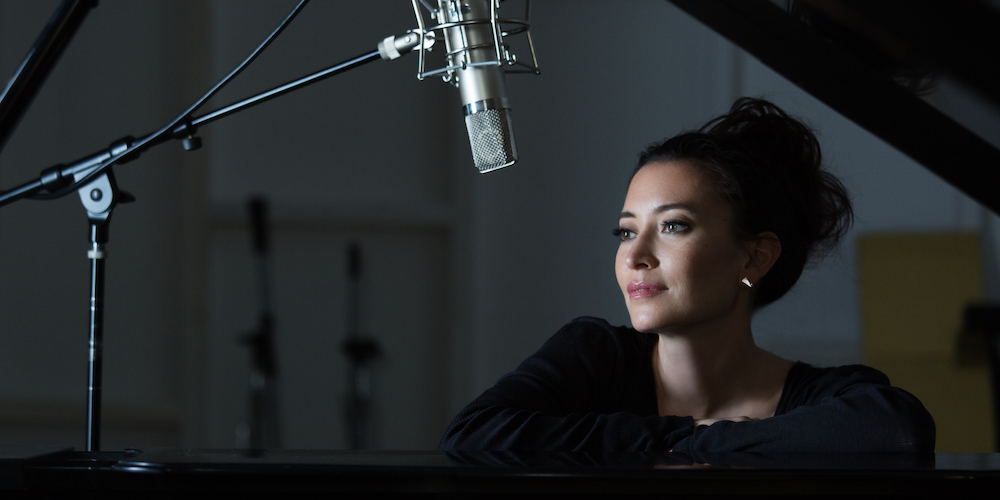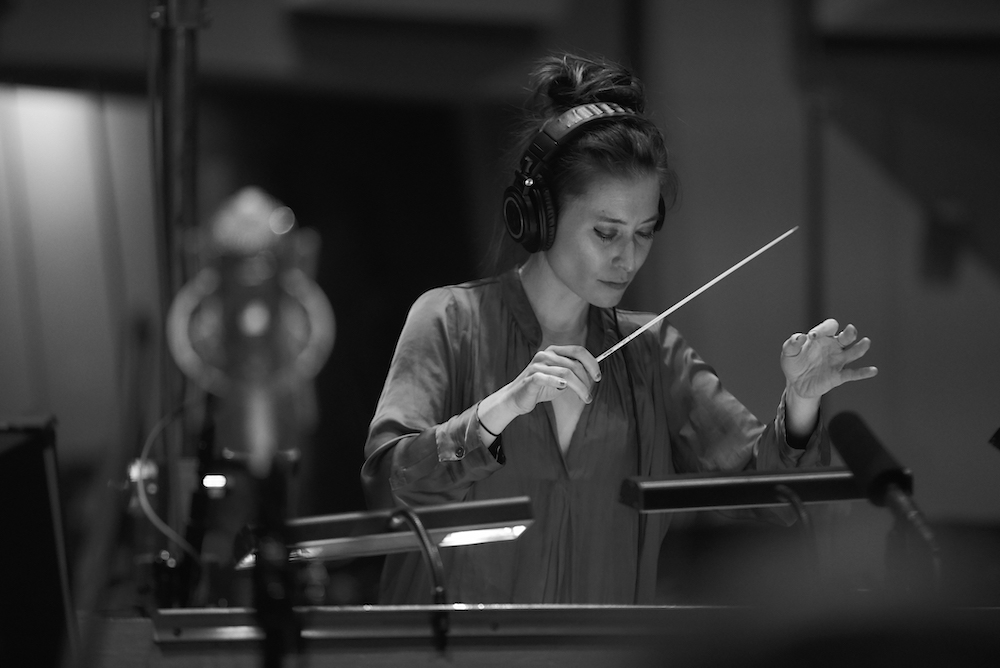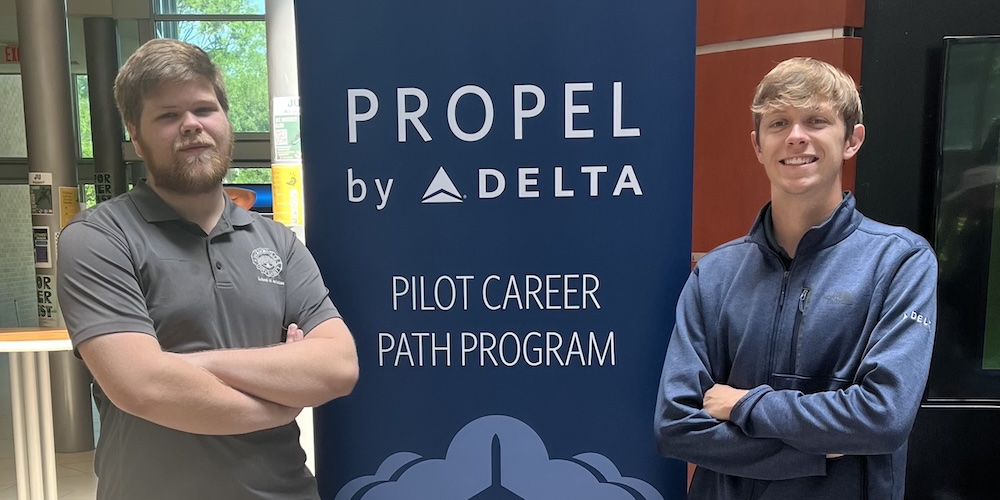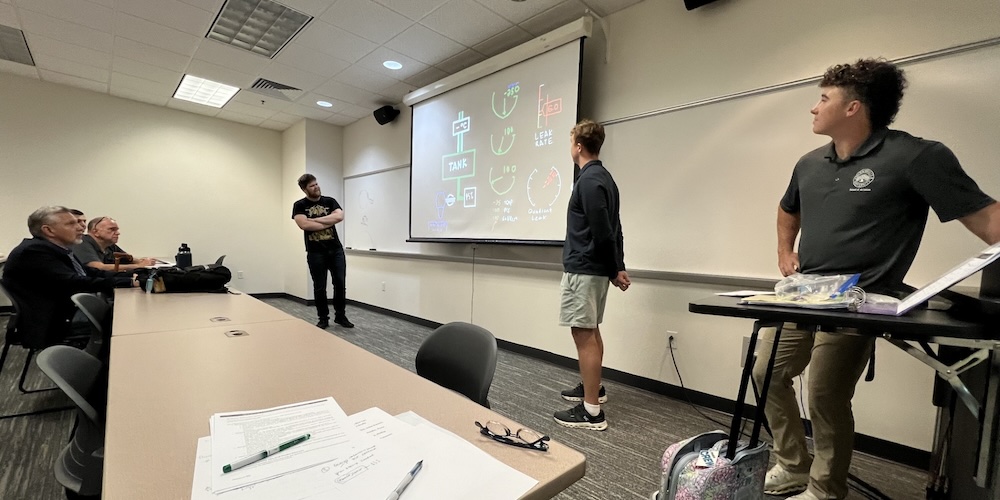As a sought-after TV and film score composer in Los Angeles, Chung feels lucky to spend her days fulfilling a childhood dream.
There are people who stay busy. Then there’s Sherri Chung '01.
As an accomplished television and film score composer in Los Angeles, she constantly juggles multiple projects that span different genres, formats and timelines.
“I’ve been very fortunate to stay quite busy,” she said. “I do a lot of episodic television, as well as film, and so because of that…it’s kind of this rolling schedule that’s always going.”
Currently, Chung is working on an hour-long action-adventure drama for CW called “Kung Fu,” a groundbreaking reboot of the 1970s TV series with a predominantly Asian cast. She’s also composing for the HBO Max animated series “Gremlins: Secrets of the Mogwai,” a much-anticipated prequel to the 1984 film, and she’s working on the Netflix film “Happiness for Beginners.” Then there’s “Riverdale,” CW’s teen drama series based on characters from Archie Comics, which Chung has worked on since 2017, and there’s the “Batwoman” series which just wrapped its final season. Add to that a pilot for a new show, some concert work, and a few other side projects here and there.
“Staying busy” may fail to adequately describe the pace of Chung’s creative output and her prolific body of work. But to her, telling stories through music is what she was meant to do.
“I realized early on that I felt a little bit more creative than just wanting to study other people’s music. I also kind of wanted to write my own,” said the New York native, singer, and classically trained pianist.
Kevin Costner changed everything for Chung. Well, actually, it was the music that was playing while Costner shot bad guys with burning arrows and rescued Lady Marian in the 1991 action film “Robin Hood: Prince of Thieves.”
Michael Kamen composed the iconic score. The thunderous timpani. The triumphant horn melodies. The frenetic, tension-filled strings. It was transcendent for Chung, sweeping her up in an emotional journey.
“I was really blown away by that kind of storytelling,” said Chung, who was in middle school at the time. “I had never been moved by music so much. So, I was like ‘I want to do that. I don’t know what it is, but I want to do that!’”
When Chung began looking at colleges, there were very few schools that had a focus on writing for film, television, or media. She chose Jacksonville University’s music composition program, which offered her scholarships, a small-school environment, warm weather, and the ability to study with beloved JU Professor of Music Theory and Composition Dr. William Schirmer.
“I consider myself a composer first, then a film composer,” she said. “If I’ve had any success at all, it’s because I had more formal training in composition.”
During her time at JU, Chung was president of the Chamber Singers and president of the JU chapter of Mu Phi Epsilon music fraternity. After graduating with a bachelor of music theory and composition, she moved to Los Angeles to study at the University of Southern California’s Scoring for Motion Picture and Television graduate program, where she was selected for a mentorship with legendary film score composer and songwriter Randy Newman. Chung says she soaked up every word he said and sought his feedback on her original music.
While studying at USC in 2008, her name was passed to Walter Murphy, the primary composer and songwriter for producer, director and actor Seth McFarland. Murphy composed for “Family Guy” and “American Dad!” and for the “Ted” movies. He hired Chung as a part-time assistant composer to help with a new series called “The Cleveland Show.” The work was mostly administrative, but the exposure was invaluable.
“I learned a lot from watching how Walter worked, how he worked with musicians, how he ran the sessions,” Chung said, recalling how Murphy would make changes to his scores on the fly while recording with an orchestra on a soundstage. “That was a huge opportunity for me to learn how I wanted to do it when I got to that place in my career,” she said.
A CREATIVE PARTNER
Meanwhile, Chung took on as many creative projects and collaborations as possible and eventually caught the ear of composer Blake Neely, who served as an advisor in her grad program. The two kept in touch after she graduated in 2009 and eventually began collaborating on various projects here and there. Their partnership took flight in 2015 when Neely was asked to score for a new television series called “Supergirl.” He called Chung to help him develop the show’s sound, and that led to collaborations on CW’s “Riverdale” and NBC’s “Blindspot.” “The challenge really came when I started working a lot more with Blake. I started four shows with him that year,” Chung said. “Starting to write at the level he was writing at… it was pushing me in a good way. It was really challenging me as a composer not only in the kind of music but also the speed with which they had to be written.”
Neely and Chung made for a magical and highly successful creative duo. Although she considered him a mentor, they became equal partners and co-creators, each bringing their own sound and style to projects.
“We were friends first. In any artistic collaboration there has to be that first, in my opinion,” Chung said. Scoring for popular shows brought more visibility for Chung, who began to make her mark in the industry as a unique talent and was named one of Variety’s 10 Composers to Watch in 2020.
Chung’s music can also be heard on CW’s “Arrow” and “The Flash,” CBS’s “The Red Line,” as well as DC’s “Legends of Tomorrow,” and Netflix’s “You.” Her film scores include “The Lost Husband” on Netflix, the Warner Bros film “Nancy Drew and The Hidden Staircase,” and horror film “The Long Night” in 2020. One of her documentaries, “The Other Side of Home,” was shortlisted for the 2017 Oscars for Best Short Documentary.
TECH-ENABLED SOUND
One of the biggest challenges of creating scores for television and film is developing a distinct sound for each project. Chung typically focuses on finding the right tone first. She draws inspiration from watching scenes to get a feel for the aesthetic and the story. Sometimes the characters themselves inspire a certain theme.
Although every project requires a totally new sound with a unique feel, Chung often uses layering and mixed meters, or rhythms. “I’m not a minimalist, I’m a maximalist when it comes to my writing,” said Chung. “I’m consciously trying to practice restraint…I just get very inspired and start adding things.”
Most of Chung’s projects are considered hybrid scores, meaning a mixture of electronic synth sounds, virtual instruments and real (or live recorded) instruments.
“As composers we have to be able to demo our music before it’s recorded live. We have to have these strong and powerful computer systems with a lot of virtual instrument sample libraries and all kinds of production skills and technological skills,” said Chung.
Her workspace consists of three large computer screens that display digital audio timelines for live tracking, a couple computer keyboards, and a large electronic piano with a Musical Instrument Digital Interface (MIDI) controller. This allows her to select and record any sound she chooses, whether it's a violin, a trumpet, or a soft synth pad.
“Technology really opened up everything for me,” said Chung. Using a digital workstation allows her to write music faster, she explained. As ideas develop, she can immediately record them, tweak them, add layers of different instruments or percussion, and bring a musical piece to life all at once. Oftentimes, the virtual instruments sound as good or better than the real thing.
Chung said learning the latest technology is a must for aspiring composers. “I really do think it’s important to have the technical skills insofar as one being able to represent their ideas,” she said, adding that it’s perfectly fine to learn as you go. “When you’re starting out, you don’t need to have every single tool… Figure out what works for you.”




